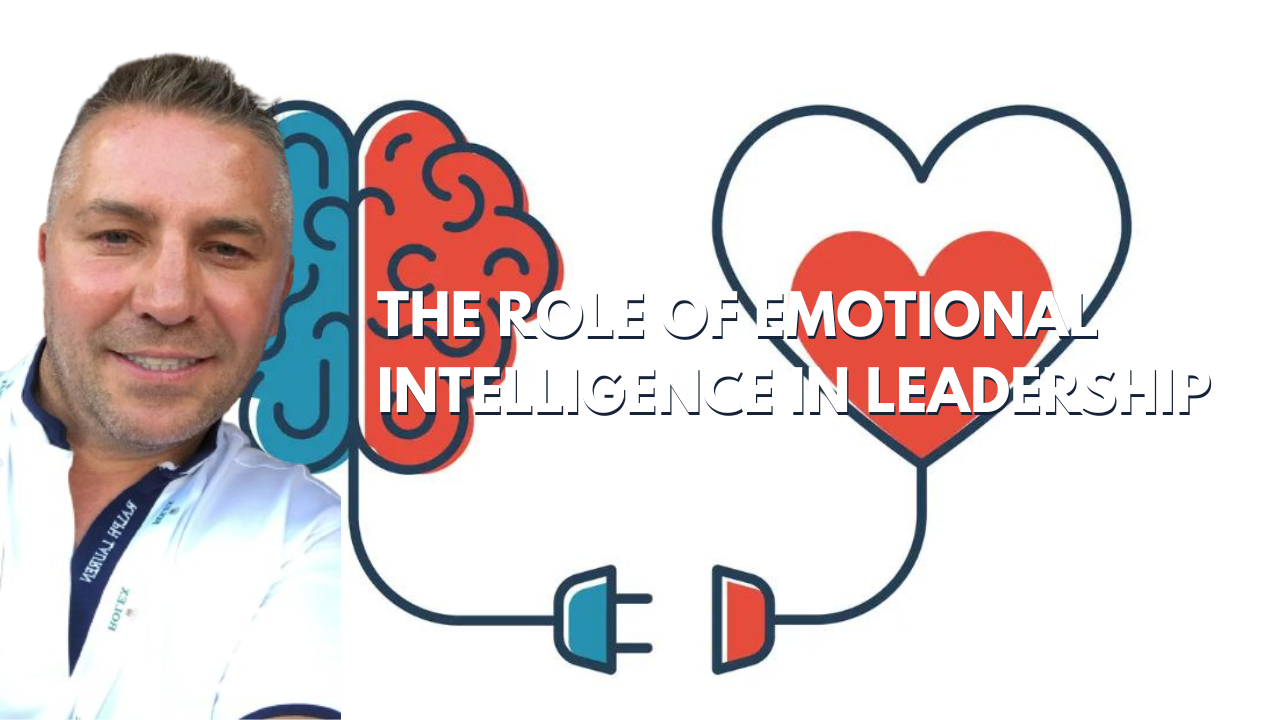In today’s dynamic and interconnected world, effective leadership extends beyond technical skills and expertise to encompass emotional intelligence – the ability to understand and manage emotions, both in oneself and others. Leaders who possess high emotional intelligence (EI) are better equipped to inspire, motivate, and empower their teams, fostering a culture of trust, collaboration, and innovation. In this blog post, we’ll explore the importance of emotional intelligence in leadership, discuss its key components, and provide insights on how leaders can cultivate emotional intelligence to drive success in their organizations.
Understanding Emotional Intelligence:

- Self-Awareness: Self-awareness is the foundation of emotional intelligence, encompassing the ability to recognize and understand one’s own emotions, strengths, weaknesses, and values. Leaders who are self-aware are better able to regulate their emotions, make sound decisions, and maintain composure under pressure, leading to greater effectiveness and resilience in their roles.
- Self-Regulation: Self-regulation involves the ability to manage and control one’s emotions, impulses, and reactions in various situations. Leaders who possess strong self-regulation skills are able to remain calm and composed in high-stress situations, navigate conflicts and challenges with grace, and maintain focus and clarity in pursuit of their goals.
- Social Awareness: Social awareness entails the ability to understand and empathize with the emotions and perspectives of others. Leaders who are socially aware are attuned to the needs and feelings of their team members, foster a culture of inclusivity and belonging, and demonstrate empathy and compassion in their interactions, fostering strong relationships and trust within their teams.
- Relationship Management: Relationship management involves building and maintaining positive relationships with others, effectively communicating, inspiring, and influencing them towards common goals. Leaders who excel in relationship management are adept at conflict resolution, collaboration, and building high-performing teams, driving organizational success through effective teamwork and collaboration.
Cultivating Emotional Intelligence in Leadership:

- Practice Self-Reflection and Mindfulness: Encourage leaders to engage in regular self-reflection and mindfulness practices to enhance self-awareness and self-regulation. Encourage leaders to set aside time for introspection, journaling, and meditation to gain insights into their emotions, thoughts, and behaviors, and develop strategies for managing them effectively.
- Seek Feedback and Coaching: Provide leaders with opportunities for feedback and coaching to support their development of emotional intelligence skills. Encourage open and honest dialogue with peers, mentors, and coaches to gain valuable insights into their strengths and areas for growth, and receive guidance on how to improve their emotional intelligence competencies.
- Foster a Culture of Psychological Safety: Create a culture of psychological safety within the organization where leaders and team members feel comfortable expressing their emotions, sharing their ideas, and taking risks without fear of judgment or reprisal. Encourage open communication, empathy, and vulnerability among leaders and team members to build trust and foster authentic connections.
- Lead by Example: Leadership by example is one of the most powerful ways to cultivate emotional intelligence in leaders. Encourage leaders to model the behaviors and qualities they wish to see in others, such as empathy, active listening, and constructive feedback. By demonstrating authenticity, integrity, and emotional resilience, leaders can inspire their teams to follow suit and cultivate their own emotional intelligence.
Conclusion: Emotional intelligence is a critical skill for effective leadership in today’s complex and fast-paced world. By cultivating self-awareness, self-regulation, social awareness, and relationship management skills, leaders can inspire trust, foster collaboration, and drive success in their organizations. As leaders embrace the principles of emotional intelligence and lead with empathy, authenticity, and compassion, they can create a positive and inclusive work environment where individuals thrive, teams excel, and organizations thrive in the face of uncertainty and change.

